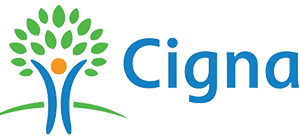Our Services
Let us help
Anxiety Disorder
Experiencing occasional anxiety is a normal part of life. However, people with anxiety disorders have constant worry or fear that are too intense and interferes with their daily activities. This ongoing worry and tension may be accompanied by restlessness, increased heart rate, feeling on edge, difficulty concentrating, muscle tension or problems sleeping. Examples of anxiety disorders includes generalized anxiety disorder, panic disorder, social anxiety disorder separation anxiety, and phobias.
Depression
Depression is a mood disorder that causes persistent feelings of sadness and loss of interest in activities a person enjoys. Depression affects how an individual feel, think, and can make it difficult to manage a person’s day-to-day activities. Some signs and symptoms of depression includes feeling sad or having depressed mood, changes in appetite, difficulty sleeping or oversleeping, decreased energy, feeling irritable, difficulty concentrating, feeling hopelessness or worthlessness, and in some cases thoughts about dying or suicide.
ADD / ADHD
ADHD is a developmental disorder associated with an ongoing pattern of inattention, hyperactivity, and/or impulsivity. The symptoms of ADHD can interfere significantly with an individual’s daily activities and relationships. ADHD begins in childhood and can continue into the teen years and adulthood. Therapy and medication are the most effective treatments for ADHD.
OCD/Obsessive-Compulsive Disorders
Obsessive-compulsive disorder (OCD) is a brain-based disorder. People with OCD have obsessions or compulsions, or both. Obsessions are unwanted and distressing thoughts, ideas, or urges that keep entering your mind. Compulsions are repetitive physical or mental acts that you feel you have to do. They may reduce or prevent any anxiety, but in most cases, they do not help. Compulsions can take a lot of time to do, often more than one hour each day. They can interfere with personal relationships and normal activities at home, school, or work.
Panic Disorder
Panic Disorder is an anxiety disorder characterized by unexpected and repeated episodes of intense fear accompanied by physical symptoms that may include chest pain, heart palpitations, shortness of breath, dizziness, or abdominal distress. These episodes occur “out of the blue,” not in conjunction with a known fear or stressor.
Trauma / PTSD
Post-traumatic stress disorder (PTSD) may develop after experiencing or witnessing an upsetting event (trauma). Types of trauma that can lead to PTSD include accidents, physical injuries, any kind of abuse, violence, or natural disasters. PTSD can occur shortly after a traumatic event or may happen weeks later. Symptoms includes flashbacks, nightmares, unwanted thoughts and memories about the event, heightened reactions, anxiety, and avoidance of situations that may trigger memories of the event. PTSD can cause significant distress and affect an individual’s daily functioning.
Insomnia / Sleep Related Issues
Insomnia is a sleep disorder. With insomnia, you may have trouble falling asleep, staying asleep, or getting good quality sleep. Common causes of insomnia are related to poor sleep habits, irregular sleeping patterns, stress, lack of exercise, chronic illness, certain medications, or mental health disorders such as anxiety and depression. Treatment for insomnia consists of improving sleep habits, behavior therapy, and identifying and treating underlying causes. In some cases, the use of sleep aid may be the solution.
Postpartum Depression
Postpartum depression (PDD) is depression that occurs the first few weeks after having a baby but can occur at any time during the first year after delivery. Women with postpartum depression can have feelings of sadness, anger, irritability, crying more often than usual, feeling disconnected from the baby, and doubting their ability to care for themselves and their baby, and thoughts of hurting themselves or the baby.
INSURANCE
We are currently accepting the following insurances: Optum, Aetna, Cigna, & BCBS; and all major credit/debit cards for self-paying clients. Always check with your insurance carrier to determine benefits and network coverage
Payment for services rendered – including co-pays/coinsurances are due 24 hours PRIOR to the appointment.




SELF PAY RATES
$300
Initial Evaluation
$200
Follow-Up Session
$135
Cancellation Fee (less than 24 hours and No-Show Fee)
Ready to take the next step?
Feel free to schedule an appointment with our team or contact us should you have any inquiries. Currently serving patients residing in state of Pennsylvania and Maryland only.

